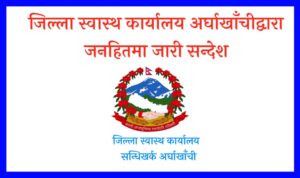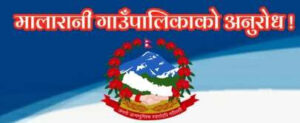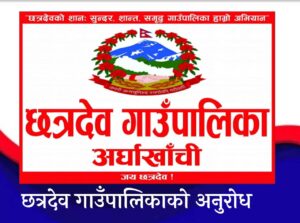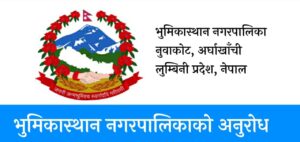Arjun Poudel Kathmandu Post
Nepal is set to receive 2,256,000 doses of Covid-19 vaccine by the end of this month under the World Health Organisation’s COVAX facility, the UN health agency announced on Wednesday.
According to the first interim distribution forecast published by COVAX on Wednesday, the UN health agency will provide Covishield, developed by the University of Oxford and pharmaceutical giant AstraZeneca and manufactured by the Serum Institute of India, to Nepal.
The announcement comes exactly a week after Nepal rolled out its Covid-19 vaccination drive with Covishield, one million doses of which were provided by India under grant assistance.
“For AZ/SII [AstraZeneca/Serum Institute of India] and AZ [AstraZeneca] indicative distribution, delivery is estimated to begin as of late February,” reads the World Health Organisation’s forecast.
The Department of Drug Administration, Nepal’s top drug regulatory body, so far has granted emergency use approval only to the Oxford-AstraZeneca vaccine.
“Yes, we have been informed that we are going to receive 2,256,000 doses of vaccine under the COVAX facility,” Dr Shyam Raj Upreti, coordinator of the Covid-19 Vaccine Advisory Committee, told the Post. “I have not seen the letter but I am told that the vaccine will be supplied from February last week.”
The vaccines to be provided by the UN health agency will be sufficient for 3.3 percent (around one million) of Nepal’s 30 million population, as around 10 percent of the doses tend to get wasted in general, according to doctors.
Nepal needs to vaccinate 72 percent of its people against Covid-19, as children up to 14 years of age constitute 28 percent of the population. No vaccine against Covid-19 has been trialled as of now for children under 14.
Covishield, however, can be administered to people above 18 years only.
Covishield has been the preferred vaccine of Nepali authorities since the existing storage and transportation infrastructure used in the country to immunise children can be utilised for its use.
Covishield vaccines have to be stored in plus temperatures between 2 and 8 degrees Celsius.
The one million doses of Covishield that India provided were prioritised for health care workers and frontline personnel—ambulance and hearse drivers and security personnel deployed for managing the bodies of those who died from Covid-19-related complications.
The India-provided vaccines are expected to be sufficient to inoculate around 430,000 people.
After the frontline and healthcare workers, those above 55 years are the priority, as Covid-19 death rate among people of this age group has been reported to be the highest.
According to Health Ministry officials, the vaccines received under the COVAX facility will be administered to people above 55 years of age.
“We will start administering the jabs received under COVAX facility to people above 55 years,” said Dr Samir Kumar Adhikari, joint spokesperson for the Health Ministry. “I have not made any calculation, but we will give vaccines first to the people who are in a high risk group.”
Adhikari said the government has already made a plan to immunise people in a staggered manner based on priority.
Those between 40 and 55 years of age will be immunised in the third phase and the remaining population will be inoculated in the fourth round.
The 2,256,000 doses that Nepal will receive by the end of this month are part of the UN health agency’s pledge to provide vaccines for 20 percent of the population in the form of grants, according to Health Ministry officials.
The government then will have to arrange vaccines for just 52 percent of the population. For this, the country will have to procure around 45 million doses of vaccine. Each person needs two doses. According to doctors, up to 15 percent of the doses can get wasted generally during large-scale campaigns.
Nepal was among the first countries to roll out the Covid-19 vaccination drive last week, thanks to the India-provided vaccines.
Nepal started administering the vaccine just three days after the country marked a year since it confirmed its first coronavirus case on January 24 last year.
As of Wednesday, Nepal has reported 271,431 infections and 2,031 deaths.
Officials say inoculating people as the government receives vaccines won’t be much of a problem, as the country has already rolled out the vaccination drive.
“As we have been successfully administering vaccines to the targeted population, we are on the high priority list of the WHO,” Adhikari, joint spokesperson for the Health Ministry, told the Post. “We are in regular touch with officials from the UN health agency and we have convinced them that there won’t be problems in inoculating the population as we receive additional doses.”





